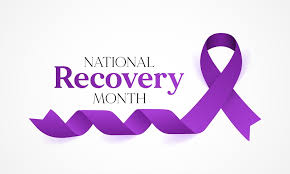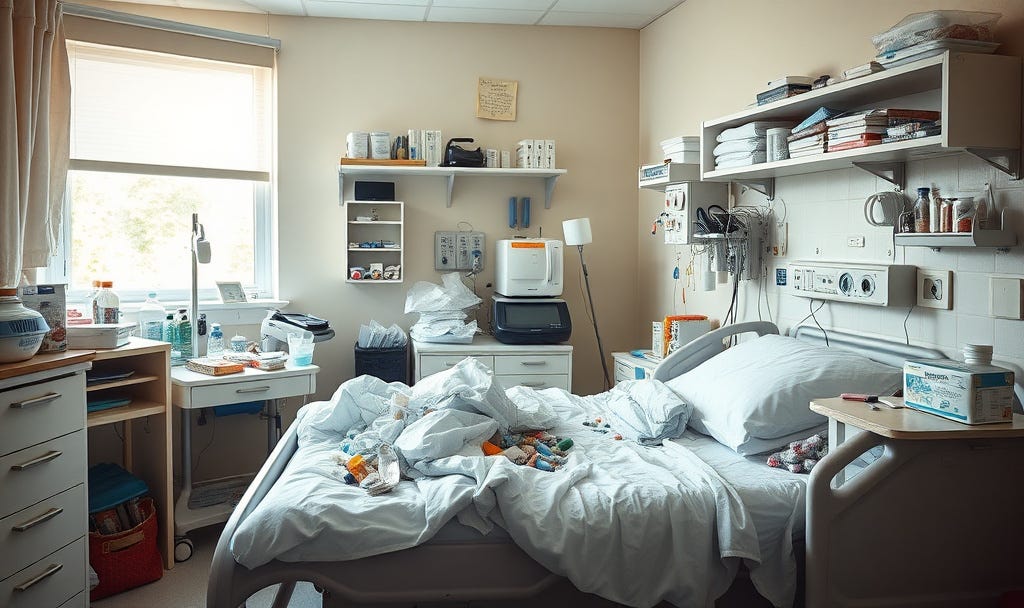Recovery Month: The Non-BS Guide
September is Recovery Month. Yay, party hats and balloons, right? Except it's not all rainbows and unicorns. Recovery is hard, messy, and sometimes downright ugly. But it's also the most worthwhile thing you'll ever do.
The Birth of Recovery Month
Way back in 1989, the federal government launched Recovery Month. It was a time to raise awareness, smash stigma, and celebrate the folks who'd fought their way back from addiction. But it wasn't just about feel-good fluff – it was a call to action, a reminder that addiction treatment should be just as accessible as treatment for any other health condition. SAMHSA started National Recovery Month in 1989, but it was originally called "Treatment Works! Month" Recovery Answers. It wasn't until 1998 that the name was changed to National Alcohol and Drug Addiction Recovery Month to reflect the focus on recovery, not just treatment Canyon Vista.
The People Behind the Movement
Recovery Month wasn't the brainchild of some out-of-touch bureaucrats. It was driven by advocates, many of whom were in recovery themselves. They knew firsthand the struggles, the setbacks, and the sheer grit it takes to rebuild your life from the ashes. They were the warriors on the front lines, fighting for better treatment, more funding, and less judgement.
Organizations like Faces & Voices of Recovery, the nation's leading non-profit recovery advocacy organization, have been instrumental in promoting Recovery Month and advancing the recovery movement. They walk side-by-side with recovery community organizations, peer support specialists, and others to make sure the voices of those in recovery are heard loud and clear.
Mobilize Recovery is another key player, bringing together a diverse cross-sector cohort of advocates, allies, and stakeholders to celebrate recovery and promote access to treatment and support services.
These advocates, along with countless others, have worked tirelessly to make Recovery Month a time for celebration, education, and action. They've helped shift the conversation around addiction, putting a face to recovery and showing that it is possible to overcome even the darkest of struggles.
Recovery: It's a Thing Now
Flash forward to today, and recovery is finally getting the spotlight it deserves. We're seeing recovery stories plastered on billboards, hearing them shared openly on social media, and watching as recovery communities spring up in cities and towns everywhere. It's like the recovery movement has finally hit the mainstream, and it's about damn time.
But Let's Get Real
Recovery isn't some linear journey where you just put one foot in front of the other and voila, you're fixed. It's messy, it's complicated, and it's different for everyone. There's setbacks, relapses, and days when you just want to throw in the towel. But there's also growth, healing, and those moments of pure joy that make it all worthwhile.
The Stigma Problem
Stigma is like that annoying relative who just won't quit. It's the judgement, the whispers, the whole "just say no" BS that ignores the complexity of addiction. And it's deadly, keeping people from seeking help and speaking openly about their struggles. We need to create a world where no one is ashamed to say, "I'm struggling, and I need support."
Suicide Prevention and Overdose Awareness
Recovery Month also overlaps with two other critical awareness events: National Suicide Prevention Awareness Month and National Overdose Awareness Day (August 31). It's a harsh reminder of the stakes. Addiction is a matter of life and death, and we need to be talking openly about suicide and overdose, rather than sweeping them under the rug. The National Suicide Prevention Lifeline is a critical resource for those in crisis, and SAMHSA provides key resources for overdose prevention.
The Top 10 Things You Should Know
Addiction is a disease. It's a chronic condition, just like diabetes or heart disease. It's not about being weak or lacking willpower.
Anyone can become addicted. It doesn't matter how much money you make, how good your upbringing was, or how smart you are. Addiction can happen to anyone.
Recovery is possible. With the right treatment and support, people can and do recover. It's not always easy, but it's worth it.
There's no one-size-fits-all solution. What works for one person might not work for another. Treatment needs to be tailored to the individual.
Stigma kills. It keeps people from seeking help, from being honest about their struggles. We need to create a world where those struggling feel safe coming forward.
Language matters. Using terms like "addict" or "junkie" dehumanizes people. We need to use person-first language, like "person with a substance use disorder".
Recovery isn't a solo act. Having a strong support system is key. That means supportive family and friends, as well as support groups like NA or AA.
Relapse is part of the journey. It doesn't mean you've failed, it just means you need to tweak your treatment plan. It's like if you were diabetic and your blood sugar got out of control - you'd adjust your meds and diet, you wouldn't beat yourself up over it.
Mental health matters. So often, addiction and mental health issues go hand in hand. We need to be treating the whole person, not just the addiction.
Silence equals death. The more we talk openly and honestly about addiction, the more we can break down the stigma and barriers to care. It's like that saying goes: "You're only as sick as your secrets."
The Hard Truth
Recovery Month is a time for celebration, but it's also a time for some hard truths. Addiction is a ravaging disease that's tearing families apart and destroying lives. It's a public health crisis that's not going anywhere anytime soon.
But in the face of all this, there's hope. There's the hope of recovery, the hope of redemption, the hope of a second chance at life. And that's what Recovery Month is really about.
So, let's raise a (sober) glass to the warriors, the fighters, the ones who've made it through the fire and come out the other side. Let's honor their journeys, their struggles, their triumphs. And let's vow to keep talking, keep sharing, keep fighting until every person struggling with addiction knows that they are seen, they are heard, and they are not alone.
- If you're struggling with addiction, hit up a helpline like the Substance Abuse and Mental Health Services Administration (SAMHSA) National Helpline at 1-800-662-HELP (4357).
- If you're looking for Recovery Month events in your area, check out the SAMHSA website.
- If you want to get involved in the recovery community, look into organizations like Faces & Voices of Recovery or the National Alliance for Medication Assisted Recovery.
- For suicide prevention resources, call the National Suicide Prevention Lifeline at 1-800-273-TALK (8255).
- For overdose prevention resources, check out the SAMHSA Opioid Overdose Prevention Toolkit.
Stay strong, warriors. The world needs you. -Belle-






No comments:
Post a Comment